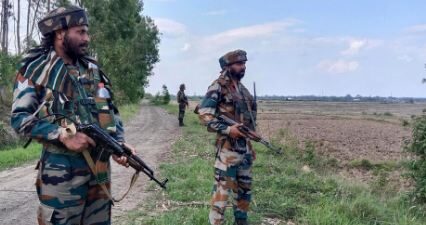


The tribal dimension in the North Eastern socio-political landscape is one of the dominant issues. The flashpoint of Manipur is innately associated with the issue of tribal claims and aspirations. The supposedly disproportionate land holdings among the Meiteis, Kukis and Nagas have been the crux of the problem. This resentment has further been exacerbated by the migration of these communities into the hill and valley areas. The overlapping territorial claims by various militant organisations have caused mutual distrust and hostility amongst the communities which is exacerbated by corrupt and non- inclusive governance.
The genesis of the large scale ethnic violence in Manipur on 3rd May, 2023 could be traced back to a protest march organised by All Tribal Students Union of Manipur in headquarters of all the hill districts of Manipur. Initially a peaceful march, it turned violent when the Kuki militants allegedly attacked Meitei community members in Churachandpur district. In retaliation the Meitei community attacked Kukis in valley areas. In the aftermath of these violent ethnic conflicts more than 70 people were killed and more than 48,000 people were rendered displaced, along with large scale damage to infrastructure. Prompt action was taken by the government with suspension of internet, curfew was imposed and a shoot at site order was given.
The protest march was in response to a High Court judgment in April 2023. The High Court ordered the state government to send a recommendation for the inclusion of Meitei community in the Scheduled Tribe community. The Supreme Court has termed this judgment as ‘factually wrong’. The Meitei community has historically been demanding the inclusion in the Scheduled Tribe list. In 1995, the Meitei community was granted Other Backward Class (OBC) status. In 2012, the Scheduled Tribe Demand Committee of Manipur Valley was established and the demand for inclusion of the Meitei community in the Schedule Tribe category intensified. In 2013, the Union Government asked the state government to forward the recommendations for the inclusion of the said community in the Schedule Tribe list. The Manipur Government did not respond.
The issue has revived a decade later and again the state government has not replied to the Union Government’s call for recommendations. The Meitei tribal union filed a writ petition this year in the High Court asking the High Court to direct the state government to reply to the 2013 letter of the Union Ministry for Tribal Affairs.
A point of consideration is that both the Nagas and Kukis are against the inclusion of the Meitei community in the ST category. Kukis have simmering anger against the Meitei dominated state government. There are several decisions taken by the incumbent government which have been contested by the Kukis. Prominent among them is the issue of migration. After the military coup in Myanmar, rampant migration from Myanmar has created socio-economic issues. In response, the government has suspended the free movement regime, detained 400 illegal migrants from Myanmar and issued eviction notices. These strict government responses have attracted criticism from the Kuki community because the migrating people from Myanmar are of their own community of the ‘Kuki-Chin- Mizo’ tribe.
Many political observers believe that the Manipur situation cannot be described as a simple ethnic conflict between two groups of residents, which was stimulated by the recent demand by the Kuki people for a separate administration or a Union territory carved out of Manipur. The return of normalcy to the State, adjacent to northern Myanmar, may take a longer time as the Meiteis will strongly oppose the move (as they had done in case of pro-Nagalim movement).
Another issue is ‘war on drugs’, a campaign started in 2017. The Kuki community dominates the business of illicit cultivation of poppy and the government’s crackdown, according to them, is directed against their community. As a result, large scale protests have ensued with intermittent violence. The state government considers these protests as motivated by Kuki militants and hence anti- government.
In 2016 as peace talk started, the Kukis expected that their demand for a separate Kukiland will be met. This demand has been dominating their agenda since the 1960s. The demand is in light of the animosity Kukis feel against Meitis and Nagas. The decade of 1990s witnessed a kind of ethnic cleansing of Nagas and Kukis. As a result, the demand for a separate Kukiland was intensified by Kuki militant groups. In 2008, two broad organisations subsumed all the Kuki militant groups, Kuki National Organisation and United Peoples Front. In 2016, it is these organisations with which the government started negotiations. The talks failed because of the lack of convergence in demand between the two groups.
In a larger context, Hill-Valley divide is the crux of the problem. One needs to understand the detailed the geographic and demographic landscape of both Hill and Valley areas. Meiteis which from 53% of the population but inhabit only 10% of the land. Northern districts are occupied by Nagas which constitute 17% of the population while Kukis, which form 26% of the population are concentrated in the southern part of the state. This disproportionate spatial distribution of the Meities and tribals is the crux of the problem.
If peace has to see its day, all the three communities will have to step back from their rigid demands and uncompromised stand. Government should be the first initiator and provide inclusive and efficient governance, rest will follow. Kukis need to reconsider their demand for greater Kukiland for more than one reason.
The writer is an Associate Professor in Seedling School of Law and Governance, Jaipur National University, Jaipur.